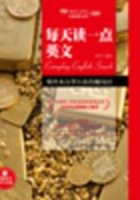
第7章 Invest&Finance (2)
Stephen,83,and Samuel,53,used to do a lot of sailboat racing together. “That’s how we learned to work together as a team,” says Stephen. That experience was critical to the 1989 launch of the Alpine International Real Estate Equity fund,the first global real estate offering of its kind. Not only did that wed the son’s experience in real estate and REITS with the father’s decades of asset and portfolio management,it taught Samuel a valuable professional—and personal—lesson.“In the late 1980s,we were so big in the real estate sector that we found we were moving share prices around,” Samuel says.“I expressed concern to my dad. He said look farther afield,broaden your horizons and look for other types of opportunities.”That’s how the first international real estate fund was born. Today Alpine runs nine funds,but that first lesson remains key,Samuel says.“Take a broad,holistic approach not only to investing,but also to life.”
Ronald,62,started R.W. Rogé in 1986 as a financial planning and advisory business. He first started stock picking in the early 1970s but found that he wasn’t very good at it. He was better at finding good fund managers—like his son Steven,28,who joined the company in 1997.“I’m really good at strategy and looking at the big picture,”Ronald says.“Steve is very good at finding undervalued stocks.”Steven might have been a longtime disciple of Benjamin Graham and Warren Buffett,but his first job at Dad’s office was making copies and doing other menial chores. After seven years of learning the business,Steven become portfolio manager of the Rogé Partners fund,which launched in late 2004. The fund got off to a good start,posting total returns of 10% and 21% in 2005 and 2006,respectively,but cooled off in 2007 and,of course,2008. But then that just makes the lessons instilled by the father all the more important.“When you are a value investor the most important thing is patience,” Ronald says.“Warren Buffett watched Coca-Cola for 25 years before he purchased it.”
这显然是陈词滥调,不过确实是真的:书上是学不到这一切的。一个商学院学位对一个年轻的资金经理或咨询师的成长很重要,同样,一个年长睿智、经验丰富的职业老手传授的经验也是无可取代的。
谈到学习对象,还有谁会比亲爱的老爸更好呢?
罗纳德·罗杰和他的儿子斯蒂文·罗杰共同运营着R.W. Rogé & Co.和Rogé Partners fund。罗纳德谈到自己的儿子时说,“斯蒂文大约在八岁的时候,就发现把钱放到银行就可以得到利息,那是他第一次表现出对投资的兴趣。”罗纳德笑着说,“换句话说,他发现不干活也能挣钱。”
斯蒂文后来又对共同基金产生了兴趣。他当时在收集篮球卡,因此罗纳德就向他解释说,一只共同基金有点像是一叠篮球卡──一篮子个股,一些股票可能会比其他股票更值钱。当斯蒂文12岁的时候,他开始痴迷于此了。
《财智》杂志在父亲节周末之前做了一个关于父子团队组合的报道,这是其中的一个共同主题。当股票、债券、共同基金和市场成为家庭餐桌谈话中心的时候,小孩子自然会很小就有了对投资的兴趣。
更为重要的是,这些关系能引发对历史、经验、风险以及非常规思维的重视──这可是你在MBA课程中不一定能学到的东西。
毕竟,如果你的爸爸长期从事这项业务,那他在证券市场前沿数十年的经历肯定会让你受益匪浅。下面我们就看看五对父子投资组合的情况──其中一些家传密技的参考价值会很高。当然,女儿们也会从中受益。阿比加尔·约翰逊就在协助运营着她家人创立的共同基金巨头富达基金。
那就我们分享学习罗杰父子以及其他四对父子投资组合的投资秘诀吧。
奥尔父子组合|奥尔增长基金
现年48岁的鲍伯·奥尔在添惠证券投资谋到了一份经纪人的工作,而现在73岁的布莱恩·奥尔当时就已经相当成功地管理他自己的投资很长时间了。布莱恩和儿子合开了投资账户,但对公司的研究或推荐股票并不感兴趣。他有自己的选股心得──其中的一条规律目前仍在奥尔成长基金沿用:在数千只股票中搜寻那些收益增长25%,至少是20%的销售增长,未来市盈率不超过12倍的公司股票。布莱恩说,“一旦股票不再具有这些特征,或是股价增长一倍,我们就会卖出。”鲍伯回忆道,“我们从1987年开始实施这一策略,到2007年我们的账户年回报率超过了30%”。因此,在2007年底,两人共同推出了奥尔成长基金,鲍伯担任投资组合经理,布莱恩负责投资组合分析。2008年显然不是个开创基金的好时候,但该基金今年以来已经上涨了22%。当被人们问到从父亲那里学到什么重要的教益时,鲍伯笑着说,“只有一条,那就是如何实现每年增值30%的目标。”
克劳福特父子三人|克劳福特基金公司
1989年,肯特·克劳福特决定辞去在所罗门兄弟的工作,回到巴尔的摩和父亲高登·克劳福特创立一家公司;现年76岁的高登当时担任T. Rowe Price的董事兼经理职位已长达20年。高登说,“我当时做的第一件事就是让肯特做总裁,然后他就做了20年的老板。小儿子罗赛尔于1999年加入公司。高登表示,“他们两人都有你所能想到的最好的道德与性格,这会给他们从事这个行业带来很大帮助。”克劳福特基金选择的股票都是可以长期持有的、市盈率较低的优质股。凭借这一策略,该基金过去3年、5年和过去10年的回报率一直都超过了标准普尔500指数。现年46岁的肯特说,他从父亲那里学到的最重要的经验就是,着眼于长远对投资股票很重要。他说,“当你年纪不大的时候,你一般不会这么想”。现年35岁的罗赛尔说,父亲教他们要经常质疑常规智慧。他说,“这已经渗透到我们的血液里了。父亲让我们以反向投资的眼光去寻找内在的隐藏价值,这是我们从父亲那里学到的最大教益。”
格拉泽父子|Mayflower Advisors